Earth Healers!
Concluding the process of implementation of a spiral of medicinal herbs in the Upatoro center.
“Young leaders of El Salvador and Guatemala alert to change, learning and un-learning about Permaculture as a new resilience system” Susana Ruiz, SERES ES facilitator Permaculture as a life philosophy applied, being in us and with us. It seeks a paradigm shift and a system design for a sustainable environment. The permaculture course, part of the change makers and sustainable livelihoods series from SERES, took place September 26th to October 1st in Chalatenango, with the participation of 12 young leaders from Panchimalco, Santa Marta, Suchitoto, Chalatenango and Cantel, Guatemala. This process was facilitated by Erick Torres and Ana Fion, facilitators and environmental activists in Guatemala, with an appropriate, simple and transformative modality to train young leaders to learn and unlearn with ancestral knowledge about nature and the use of appropriate technologies. Create community / introduction of permaculture The sessions motivated us to understand our origins and history, through the evolution of species and the vision of the western-indigenous world, "the capitalist development". Implementing the circle of Word, a very important ancestral technique that reminded us of the way our elders communicated and carried their meetings, introduced an ecological and political analysis of the Mesoamerican resistance. General ObjectiveTo create and strengthen sovereign communities through the basic principles of permaculture and ecology, through economic sustainability and a relationship to the environment to rescue the ancestral knowledge, including being respectful of the web of life and future generations, promoting the local youth leadership with love. Mesoamérica Resiste, an illustrated, double-side method that allowed knowing stories of resistance and solidarity. It also shows the modern invasion of mega-projects planned for the region, where communities are getting organized to defend their territories and traditions and to protect the cultural and ecological diversity. "I love the Quetzal that interweaves the culture of Guatemala, we have to work very hard to not lose what little we have left," said Wilmer Hernandez, a Guatemalan participant. This process brought together different spaces in order to inspire and have wide open eyes, revealing the sight from our hearts, inviting you to be present and welcoming the air, water, the heart of the earth and the heart of heaven. The “Mayan Flower" represented by these 4 elements that make life possible, represents the colors of the corn and the four continents. This flower reminded us the connection with our ancestors, and was present at each meeting to remind everything that exists and that we are part of. One way to connect with everything and request our petitions to the fire with offerings of incense and sesame seeds representing the richness of mother nature, requesting the wisdom of our elders during the process. Permaculture design Knowledge of the grounds, ethics and principles of attitude of permaculture make it possible to search for food sovereignty and a sustainable way to design and work your environment with local resources in harmony with nature. "The seeds are sources of ancestral knowledge," said Erick Dan, process facilitator. Water and life on the ground The water situation and the crisis in El Salvador, a projection and short film to discuss and tell their own stories. This resource is taking a very delicate path given its scarcity and mismanagement, Daniela Trejo said, "We thank the Guazapa Hill because it is our water source." Seeds, family and community orchards Genetically engineered organisms, called "transgenic," are created in the laboratory with characteristics that have been altered by inserting genes from other species. Multinational companies that have made these changes have appropriated these seeds. For a producer to make use of transgenic seeds, he must pay a fee of use to these businesses. In the case of transgenic crops grown in El Salvador and Guatemala, one of the patent companies is Monsanto, who also produces agrotoxic that accompany these crops. This process emphasized the importance of adopting a natural diet and a healthy life in harmony with Mother Earth and the environment, and learning conservation techniques of native seeds, which can create seed banks in their communities and become sovereign and resilient communities facing the millennium change. The main purpose is to maintain the life that is synthesized in each seed with the ancient wisdom of the earth and our ancestors manifested unconditional giving, recovering customs of our elders, such as bartering, as practiced by exchanging and sharing with communities. Supporting this is a multitask activity; keep on giving without asking anything in return, leading to a network of sovereign seeds. Appropriate technologies, permaculture in my community Human beings have the fundamental mission of looking after the earth. Appropriate technologies, such as the implementation of living roof, self-produced fertilizers and solar energy, are alternatives seeking to take advantage of local resources. This is a model we should replicate in communities, in the search for food sovereignty, which invites us out of this system full of interests, where culture remains over time without altering the cycles of life, as the largest worldwide movement. The process invited to change the paradigm of maizal to milpa, knowing that there is no better strategy than to understand popular wisdom and to recognize that the last argument to make "milpa" is anti-capitalist. Looking at life through women's eyes, following the heart without fear. "I am very motivated and committed, first with myself and my community, to implement everything I have learned in this process," Alejandro Lorenzana, participant of the process.



